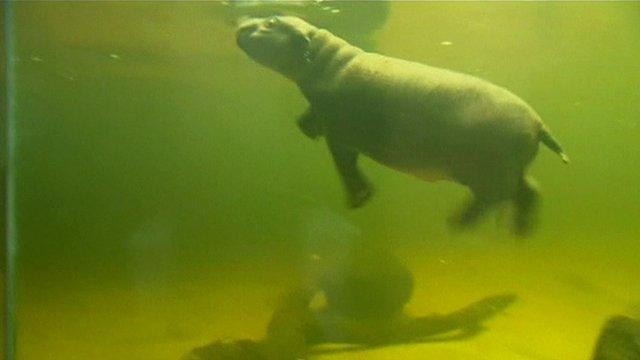El Salvador's much-loved hippo Gustavito killed at zoo
- Published
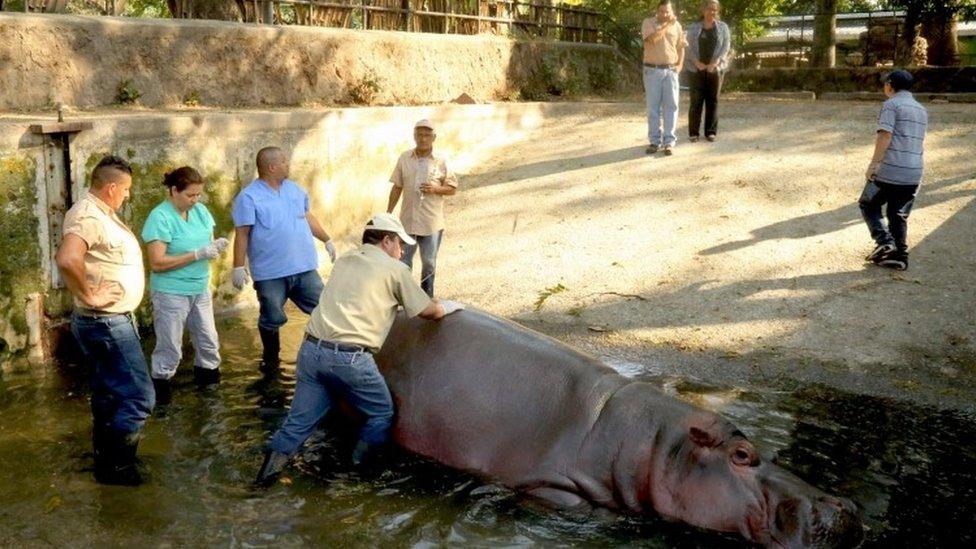
The zoo's veterinarians found cuts on the hippo's neck and face
A much-loved hippopotamus called Gustavito has died after an unexplained attack over the weekend in the National Zoo of El Salvador.
The police are trying to establish who entered the animal's enclosure at night and brutally attacked him. They said employees of the zoo were among those being questioned.
Gustavito, 15, died late on Sunday.
Officials have described it as a cowardly and inhumane attack on one of the most iconic animals at the zoo.
'Great empathy'
Security Minister Mauricio Ramirez Landaverde said that while there was no evidence that employees or security personnel of the zoo were involved, he "ruled nothing out".
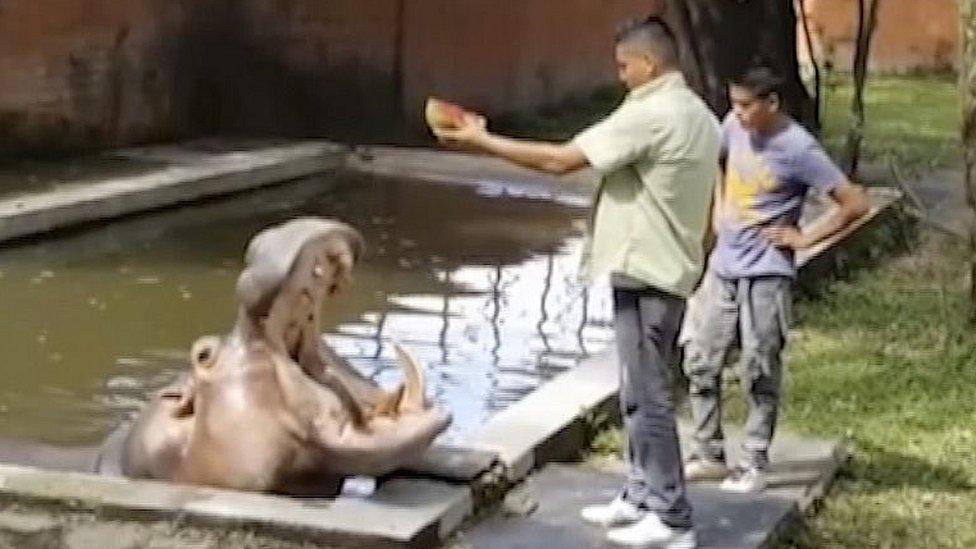
A screengrab from a 2014 video shows Gustavito being fed
Although there are CCTV cameras at the zoo, none overlook the area where Gustavito was attacked.
Zoo director Vladlen Hernandez said he did not believe employees could have played a role in the attack.
"The zoo's employees had great empathy for him, he generated empathy," Mr Hernandez said of the hippo.
He said that the zoo had received no threats from any of El Salvador's feared street gangs.
Mr Hernandez said Gustavito had been buried "straight away" because he wanted Salvadoreans to remember the hippo the way he used to be - eating fruit or swimming in his tank.
Salvadoreans shocked
BBC Central America reporter Will Grant says that in a country where murder has long lost the capacity to shock, the extreme animal cruelty that claimed Gustavito's life has angered and upset all of El Salvador.
Unknown assailants entered the national zoo in San Salvador over the weekend and subjected the hippo to a sustained beating with what appears to have been sharp weapons and blunt tools.
The following morning, the zookeepers noticed Gustavito acting strangely, refusing to eat and unwilling to come out of the pool in his enclosure.
The zoo's veterinarians then found lacerations on the hippo's neck and face, and the animal clearly in great distress.
His condition worsened on Sunday and he died late that night despite the efforts of the staff to save him.
Meanwhile many Salvadorans have taken to social media to express their sadness and disgust at the case.
Many are calling for investigation into conditions at the zoo to determine how an attack of this nature could happen so easily, while on Twitter others have simply been posting: "Forgive us Gustavito".
The country has one of the highest murder rates in the world, the United Nations said last month. About 10 people a day have been murdered so far this year, with most of the violence caused by criminal gangs, known locally as maras, which operate across Central America.
El Salvador's criminal groups were formed initially in the streets of Los Angeles in the 1980s by children of Salvadoran migrants escaping the country's brutal civil war.
When the war ended in 1992 many of them returned home, taking the LA gang culture with them.
- Published15 June 2016
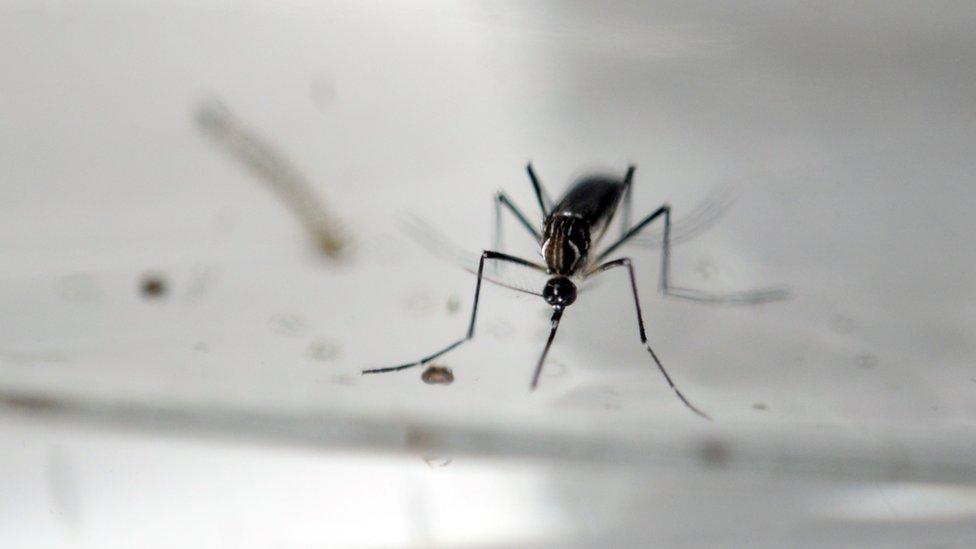
- Published13 January 2017
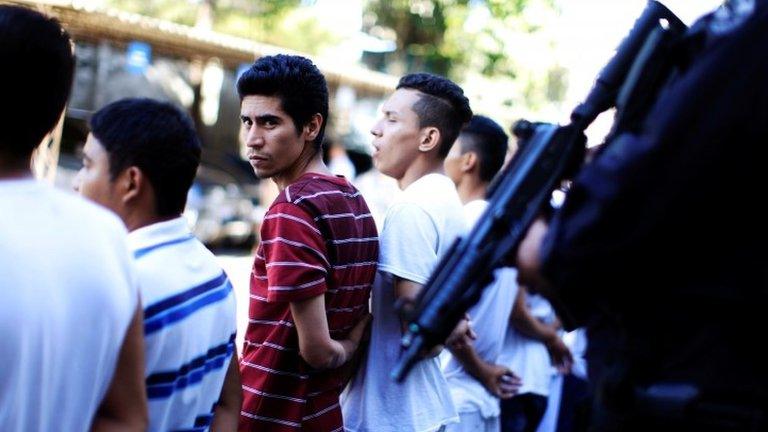
- Published14 February 2017
- Published30 October 2016

- Published21 April 2016
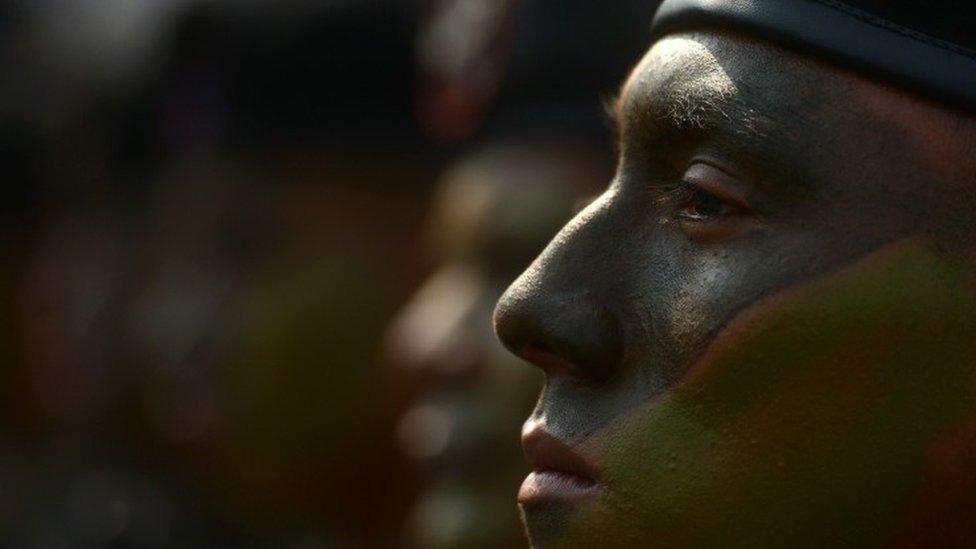
- Published30 November 2015
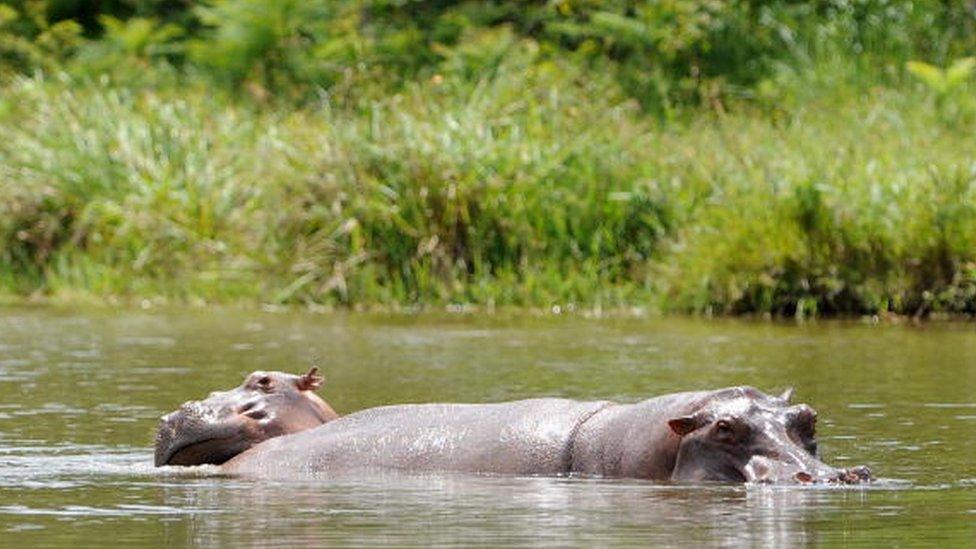
- Published3 December 2015
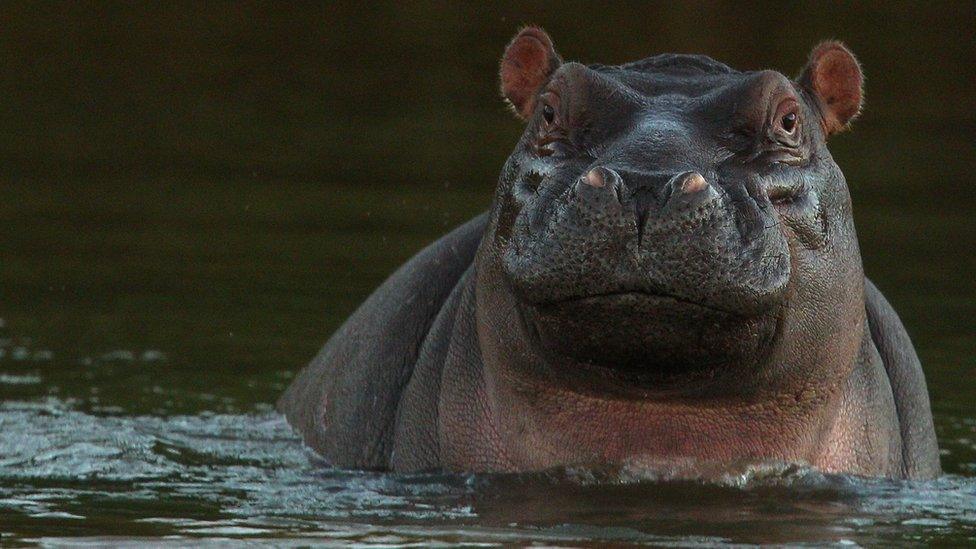
- Published26 June 2014
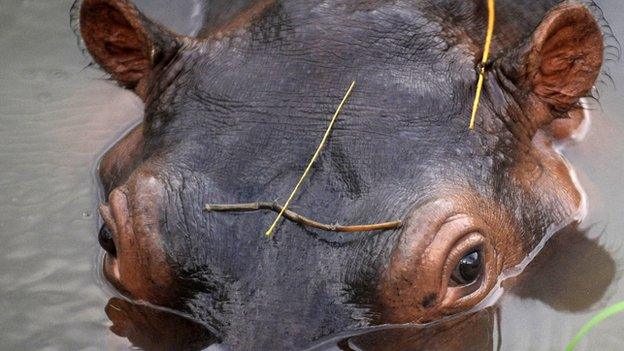
- Published18 June 2015
